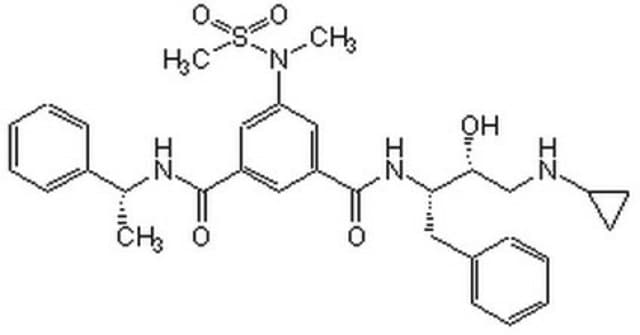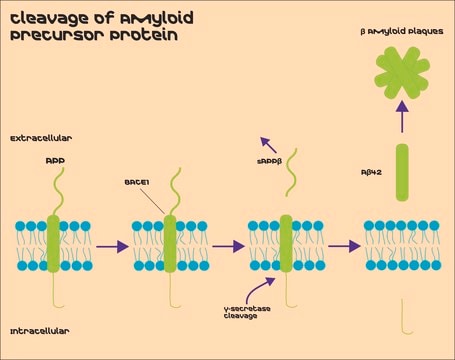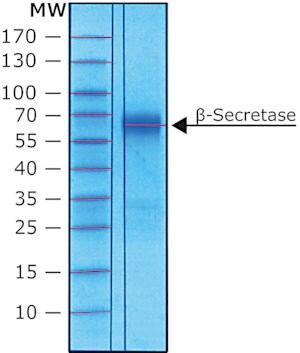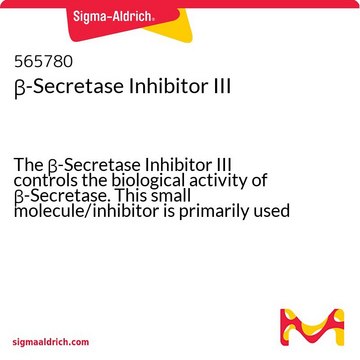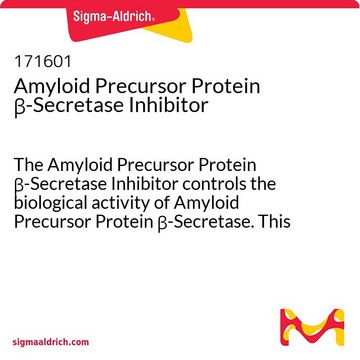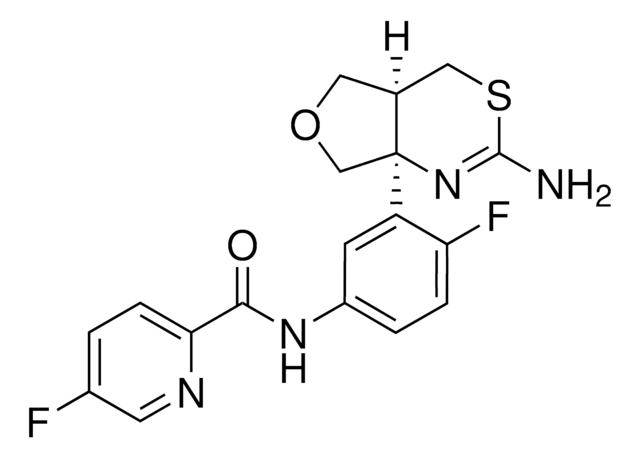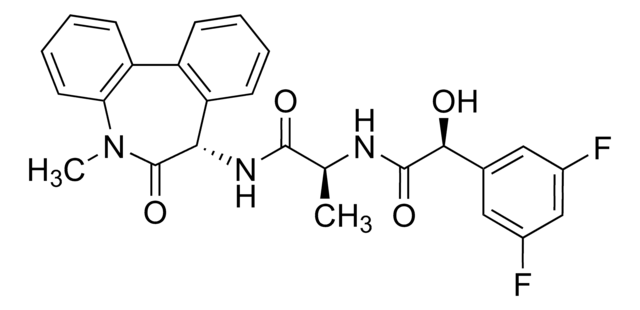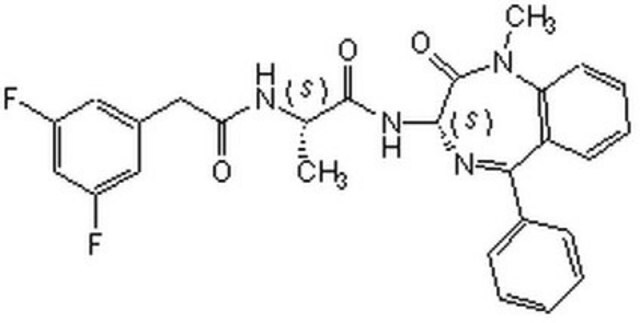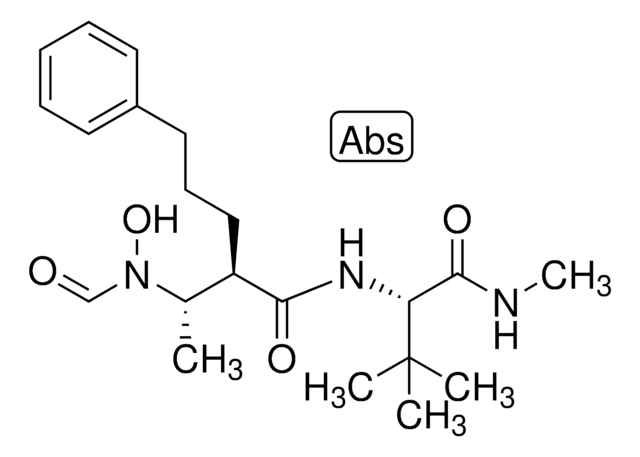S4562
β-Secretase inhibitor
≥97% (HPLC), powder
Se connecterpour consulter vos tarifs contractuels et ceux de votre entreprise/organisme
About This Item
Formule empirique (notation de Hill):
C73H118N16O27
Poids moléculaire :
1651.81
Numéro MDL:
Code UNSPSC :
12352200
Nomenclature NACRES :
NA.77
Produits recommandés
Source biologique
synthetic (organic)
Niveau de qualité
Essai
≥97% (HPLC)
Forme
powder
Poids mol.
~_1.65 kDa
Couleur
white
Pf
200 °C
Solubilité
DMSO: soluble
Conditions d'expédition
dry ice
Température de stockage
−20°C
Amino Acid Sequence
Lys-Thr-Glu-Glu-Ile-Ser-Glu-Val-Asn-Sta-Val-Ala-Glu-Phe
Description générale
β-Site amyloid precursor protein (APP) cleaving enzyme-1 (BACE1), an aspartic protease belongs to the protease family of enzymes comprises of six luminal cysteine residues. These residues help in the formation of three intermolecular disulfide bonds and N-linked glycosylation sites.
Application
β-Secretase inhibitor has been used as β-site amyloid precursor protein (APP) cleaving enzyme-1 (BACE1) inhibitor in BACE1 inhibitor assay.(2)
β-Secretase inhibitor may be used to inhibit BACE1 in studies related to AD.
Actions biochimiques/physiologiques
β-Site amyloid precursor protein (APP) cleaving enzyme-1 (BACE1) is a β-secretase that initiates the production of amyloid protein in Alzheimer′s dieases (AD) patients. β-Secretase inhibitors decrease the generation of β amyloid and formation of amyloid plaques typical of AD.
Code de la classe de stockage
11 - Combustible Solids
Classe de danger pour l'eau (WGK)
WGK 3
Point d'éclair (°F)
Not applicable
Point d'éclair (°C)
Not applicable
Équipement de protection individuelle
Eyeshields, Gloves, type N95 (US)
Faites votre choix parmi les versions les plus récentes :
Déjà en possession de ce produit ?
Retrouvez la documentation relative aux produits que vous avez récemment achetés dans la Bibliothèque de documents.
Les clients ont également consulté
Jungmi Lee et al.
Analytica chimica acta, 1022, 89-95 (2018-05-08)
Amyloid-β (Aβ) is generated by proteolytic processing of amyloid precursor protein (APP) by beta-secretase (BACE-1) and gamma-secretase. Amyloid-β is responsible for the formation of senile plaques in Alzheimer's disease (AD). Consequently, inhibition of β-secretase (BACE-1), a rate-limiting enzyme in the
Hans Hilpert et al.
Journal of medicinal chemistry, 56(10), 3980-3995 (2013-04-18)
An extensive fluorine scan of 1,3-oxazines revealed the power of fluorine(s) to lower the pKa and thereby dramatically change the pharmacological profile of this class of BACE1 inhibitors. The CF3 substituted oxazine 89, a potent and highly brain penetrant BACE1
beta-secretase inhibitor; a promising novel therapeutic drug in Alzheimer?s disease
Menting KW, et al.
Frontiers in Aging Neuroscience, 6, 165-165 (2014)
S Sinha et al.
Nature, 402(6761), 537-540 (1999-12-11)
Proteolytic processing of the amyloid precursor protein (APP) generates amyloid beta (Abeta) peptide, which is thought to be causal for the pathology and subsequent cognitive decline in Alzheimer's disease. Cleavage by beta-secretase at the amino terminus of the Abeta peptide
Patty C Kandalepas et al.
Acta neuropathologica, 126(3), 329-352 (2013-07-04)
β-Site amyloid precursor protein (APP) cleaving enzyme-1 (BACE1) is the β-secretase that initiates Aβ production in Alzheimer's disease (AD). BACE1 levels are increased in AD, which could contribute to pathogenesis, yet the mechanism of BACE1 elevation is unclear. Furthermore, the
Notre équipe de scientifiques dispose d'une expérience dans tous les secteurs de la recherche, notamment en sciences de la vie, science des matériaux, synthèse chimique, chromatographie, analyse et dans de nombreux autres domaines..
Contacter notre Service technique